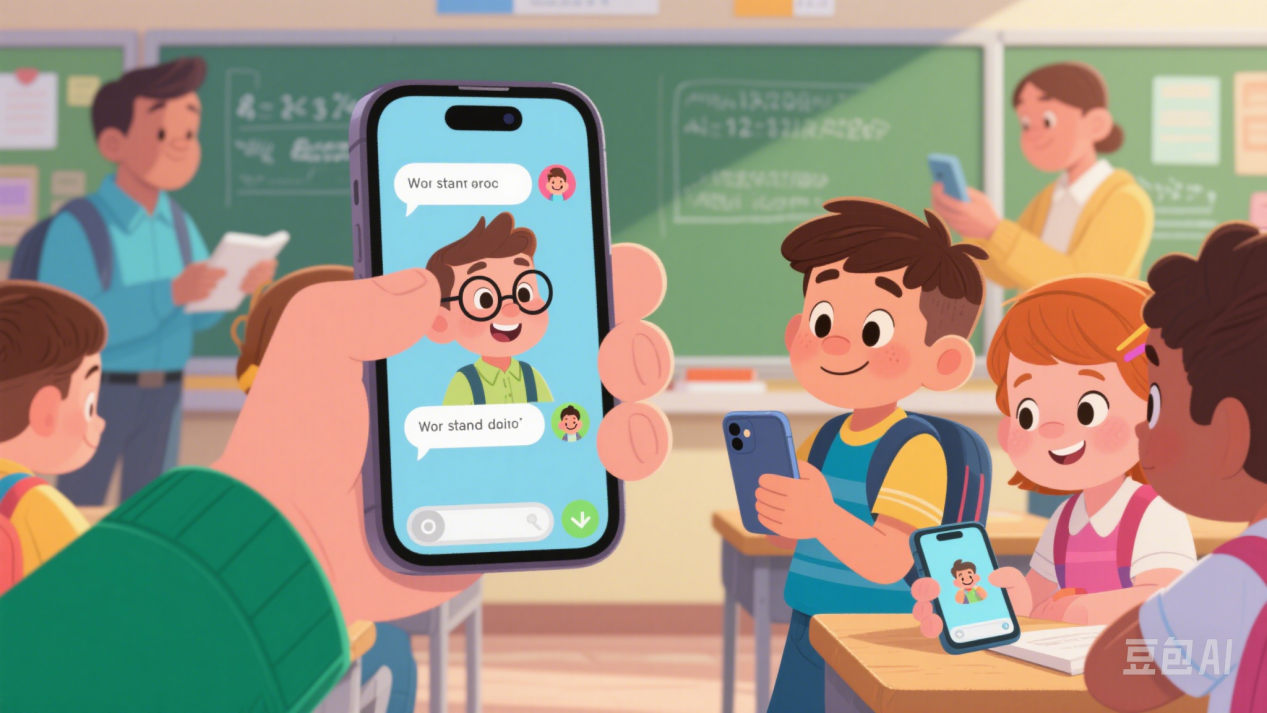
Phones are helpful, allowing kids to communicate with family and friends. But they’re also distracting — and, in school, they create difficulties for students and teachers. Should kids be allowed to use their phones in school? Here are four responses. Where do you stand?
Phones can unlock many tools that kids need at school. Phones can be used as calendars, so kids can be reminded of important dates and homework. With a phone, children can easily contact the police, in case of an emergency. And parents can communicate with their children in an emergency. What’s more, parents are easily able to locate their child by tracking the location of their phone. — Olivia
Kids can do a lot of things with phones, and it can be a distraction from their work. Schools have a way to communicate with parents if there’s an emergency. Kids can go to the office if they need to call their parents. Maybe when I’m older I’ll have a phone — but for now, I think it’s okay not to have one. — Max
I don’t think smartphones should be used at school. We are at the point where people want to text instead of talking to one another. If phones weren’t this popular, we humans would be a lot more social. To me, smartphones are to be used for entertainment. I’ve seen kids take things too far: Sometimes, kids will just go on their phone to look up answers. Phones are getting in the way of school, which isn’t good for us. — Nishika
Although bringing a phone to school might distract you, it has advantages, too, such as providing easy communication with your parents when you’re walking to school alone. Phones are also like mini computers. They can help you find answers to your questions. I think teachers should be able to control the use of phones by collecting them before class and returning them when class is finished. — Alex
原创编写 版权所有 侵权必究! 每日更新 个性化阅读 英语飙升!
1.1. According to Olivia, which is NOT an advantage of using phones at school?
A Helping kids remember important dates.
B Enabling kids to call the police in an emergency.
C Allowing parents to quickly find where their kids are.
D Helping kids improve academic performance directly.
解析:选D。细节理解题。根据第二段的“Phones can be used as calendars… locate their child by tracking the location of their phone.”可知,A 选项“帮助孩子记住重要日期”对应手机可作为日历提醒孩子;B选项 “使孩子在紧急情况下可以报警” 以及C选项 “让父母快速找到孩子的位置” 均在文中有提及。而文中未提到手机能直接帮助孩子提高学业成绩。故选D。
2.2. What can we infer from Max’s words?
A He wants to have a phone as soon as possible.
B He believes kids are more social with phones.
C Kids don’t need phones at school currently.
D He supports using phones at school.
解析:选C。推理判断题。从Max说的“Maybe when I’m older I’ll have a phone — but for now, I think it’s okay not to have one.”以及他提到学校有与家长沟通的方式,孩子如果需要联系家长可以去办公室等内容可推断出,他认为目前孩子在学校不需要手机。故选C。
3.3. Why does Nishika oppose using smartphones at school?
A Smartphones make people less social.
B Smartphones are too expensive for students.
C Smartphones have limited functions in study.
D Smartphones are not allowed in most schools.
解析:选A。细节理解题。根据Nishika所说“We are at the point where people want to text instead of talking to one another. If phones weren’t this popular, we humans would be a lot more social.”可知,她反对在学校使用智能手机是因为手机使人们变得不那么善于社交。故选A。
4.4. What does Alex suggest teachers do?
A Ban phones completely.
B Control phone use during class.
C Allow phones only for emergencies.
D Encourage students to use phones as computers.
解析:选B。推理判断题。Alex提议“teachers should be able to control the use of phones by collecting them before class and returning them when class is finished”,即让老师管控课堂上手机的使用。故选B。